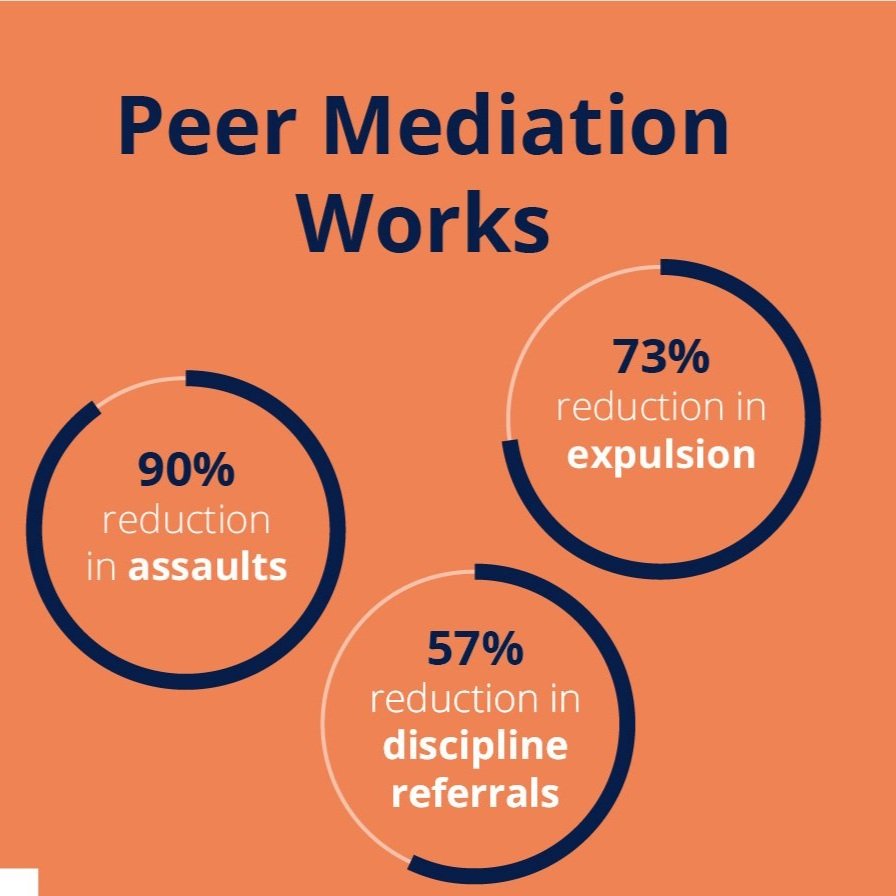Student Voice is Our Best Lesson
We have now been at our school for six sessions. In those six sessions, we have covered topics such as defining conflict, active listening strategies, the roadmap of the mediation process, and roleplays (more notes on this to come!). Teaching students about peer mediation has been good. It’s been really good, and we’re learning how to deviate from our lesson plans when students challenge us with new perspectives and thoughts to consider.
For example, the other week, we introduced the concept of mirroring. I was first taught about mirroring in college, so asking middle schoolers to grab on was challenging, and yet they rose to our expectations without hesitation. That isn’t to say that we did not have questions come up. After my co-facilitator and I modeled ‘mirroring’ in a role-play and asked for feedback, a student called out “It sounded like you were mimicking her!” In hindsight, the comment made sense, but in the moment we wanted to get closer to the objective: mirroring is a good way to empathetically listen. This comment threw a wrench in our plans and, at first, we didn’t know how to handle it. If we deviated from our plan, we’d lose time from our session, so we kept moving the conversation forward, not fully addressing our student’s remark.
After the sessions and reflection, we realized that we missed a learning moment in insisting on sticking with our lesson plan exactly as we had prepared it. The student made a valuable observation– tone matters, context matters, and there is a thin line between mirroring and mimicking, so how can we make the distinction between the two?
At the next session, our co-facilitator and I prioritized addressing our student’s comments and concerns. We spent time validating what our student said, how it was important, and where the line might fall between mirroring/mimicking fell. The conversation was helpful– students identified small, crucial differences and we were grateful to have a detour from our original lesson. It also helped to cultivate an open, collaborative environment and reinforced the idea that students’ opinions mattered in our created peer mediation training space.
This process is teaching us to stop and consider student observations and to be unafraid to spend time digging deeper in conversations we are not fully prepared to have. For me, those are the moments and lessons that will linger the longest.

